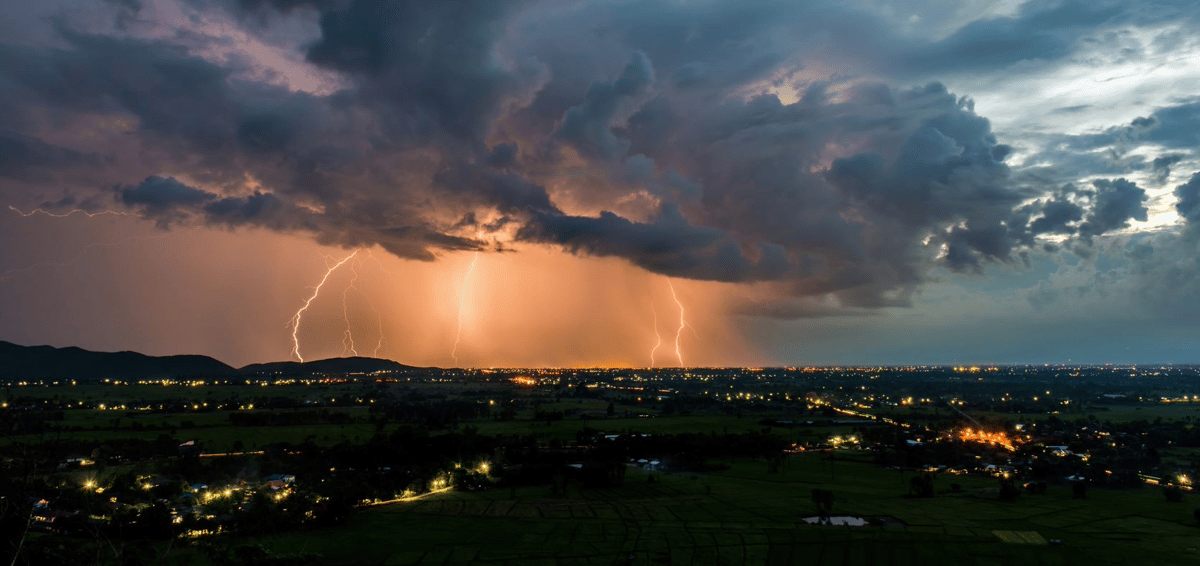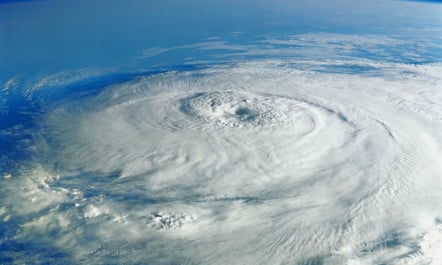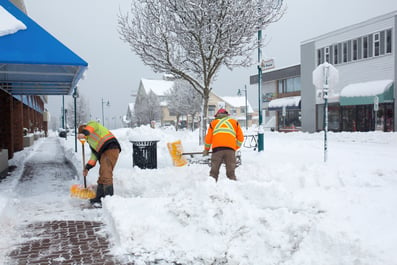When a storm threatens, what to ask a meteorologist

Summary
When wicked weather heads your way, do you know the key questions to ask? Here’s a helpful guide to get the answers you need and keep your business safe.
Key Highlights
With SkyGuard®, our expert meteorologists are available for 1:1 consultations, ensuring the right decision is made when weather threatens
Ask about predominant hazards and the storm’s future track to be better prepared for changing forecasts
Prepare for impacts before, during, and after the storm; and remember your remote employees
What to ask and why
From hurricanes to Nor’easters, severe weather can impact businesses quickly, bringing production to a halt and causing thousands of dollars in losses. If you could speak with a weather expert, would you know the right questions to ask to ensure your business is protected before, during, and after a storm hits your area? Here are some tips to help you tackle serious weather threats.
1. What is the predominant hazard you should be most concerned about?
Storm surge, flooding, powerful winds, and other hazards can cause serious structural damage and endanger your employee's lives. Always ask what the one thing is you need to be the most prepared for and prioritize that. Most of the time, this answer will depend on your location. For example, if a hurricane is heading your way, businesses near the coast will need to prepare for a dangerous storm surge while others inland may face a greater threat from flooding rain.
2. Ask about the forecast’s uncertainty and review all possible scenarios.
Even with today’s advanced equipment, forecasting remains fluid. Some weather systems are prone to rapid intensification while others may change direction unexpectedly. Ask about all of the scenarios meteorologists are considering. Specifically, ask about trusted weather models, such as the Global Forecast System (GFS), and about atmospheric conditions, like wind shear, that can play a role in a storm’s development or weakening.3. What is the time window for evacuations to take place?
If evacuations are needed in your area, ask the experts what the timeframe is in which it can be done safely. Once winds reach a certain speed, emergency crews may not respond to calls and you’ll be on your own.4. Ask about the specific impacts of being inland.
When dangerous weather approaches, news coverage tends to focus on the coastlines, but inland impacts can be very different. For example, storms can stall once they move inland, dumping huge amounts of rain in a short time. Make sure you know what to expect from the system specific to your area.5. What can you expect after the storm strikes?
From power outages to water contamination, the effects of a storm system don’t end once it passes. Ask about what conditions to expect after the weather clears so you can prepare ahead of time. Remember, the effects of such impacts can be far-reaching beyond your company’s main campus. Be sure to account for employees who are working remotely in nearby areas.







